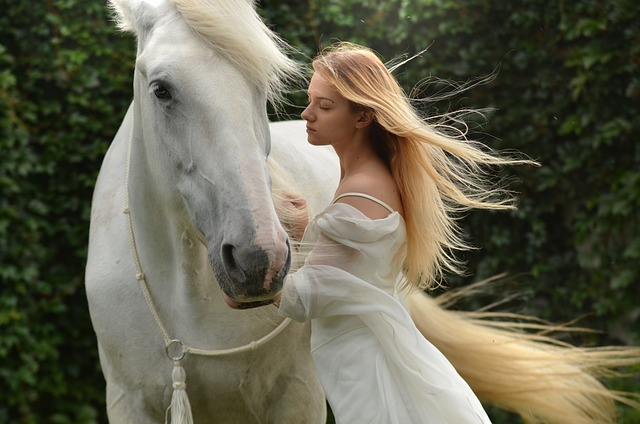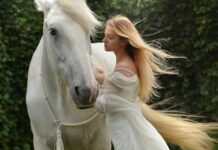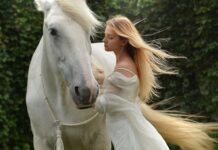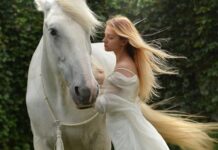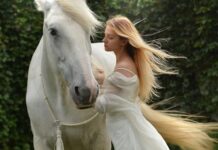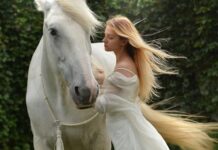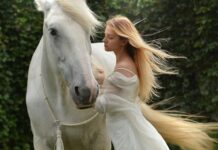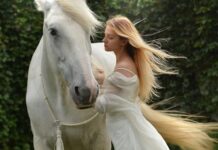Spis Treści
How do Horses Sleep?
When it comes to understanding the sleeping habits of horses, there are several fascinating aspects to consider. Horses are unique creatures with distinct sleep patterns that differ from those of humans and other animals. In this article, we will delve into the topic of how horses sleep, exploring their sleep cycles, positions, and behaviors.
Understanding Horse Sleep Cycles
Similar to humans, horses experience two main types of sleep: rapid eye movement (REM) sleep and non-rapid eye movement (NREM) sleep. However, unlike humans who have a consolidated sleep period, horses have a polyphasic sleep pattern, meaning they sleep in multiple short periods throughout the day and night.
On average, horses sleep for around three hours per day, distributed across several sleep episodes. These episodes typically last for 15-30 minutes each, occurring intermittently throughout a 24-hour period. Horses can sleep both standing up and lying down, and they alternate between these positions during their sleep cycles.
Sleeping Positions of Horses
Horses have the unique ability to sleep while standing, thanks to a specialized stay apparatus in their legs. This mechanism allows them to lock their joints, enabling them to relax and rest without collapsing. Sleeping while standing is advantageous for horses in the wild, as it allows them to quickly escape from potential predators.
When horses sleep standing up, they enter a light sleep stage known as slow-wave sleep (SWS). During this phase, their muscles relax, and their heart rate and metabolic rate decrease. Horses can maintain this position by using a “stay apparatus” that involves engaging specific tendons and ligaments to support their weight.
While standing sleep is common, horses also require deep sleep, which they can only achieve by lying down. Horses typically lie down for short periods of time, usually ranging from 15 minutes to a few hours. During this time, they enter REM sleep, which is characterized by rapid eye movements and increased brain activity.
Factors Influencing Horse Sleep
Several factors can influence the sleep patterns and behaviors of horses. These include:
- Age: Young foals require more sleep than adult horses, often sleeping for up to 16 hours a day. As horses age, their sleep patterns gradually shift to resemble those of adult horses.
- Environment: Horses living in a safe and comfortable environment tend to sleep more soundly. Factors such as noise, temperature, and the presence of other animals can affect their sleep quality.
- Herd Dynamics: Horses are social animals that rely on the presence of their herd for safety. When in a group, horses take turns sleeping and standing guard, ensuring that at least one member is awake and alert at all times.
- Health and Well-being: Horses experiencing pain or discomfort may have disrupted sleep patterns. Conditions such as colic or lameness can affect their ability to find a comfortable position for sleeping.
Signs of Horse Sleep
Identifying when a horse is sleeping can be challenging, as they often exhibit subtle signs. Some common indicators of horse sleep include:
- Droopy Head: When horses are in a light sleep stage, their head may droop slightly, and their eyes may partially close.
- Relaxed Muscles: During sleep, a horse’s muscles become more relaxed, and their tail may hang loosely.
- Shift in Weight: Horses may shift their weight from one leg to another while standing, indicating that they are dozing off.
- Lying Down: If a horse is lying down, it is a clear sign that they are in a deeper sleep stage.
Conclusion
In conclusion, horses have unique sleep patterns that involve both standing and lying down. They experience multiple short sleep episodes throughout the day and night, with each episode lasting for 15-30 minutes. Horses can sleep standing up by utilizing a specialized stay apparatus, and they also require deep sleep achieved by lying down. Various factors, such as age, environment, herd dynamics, and health, can influence a horse’s sleep patterns. By understanding how horses sleep, we can ensure their well-being and provide them with a suitable environment for restful sleep.

